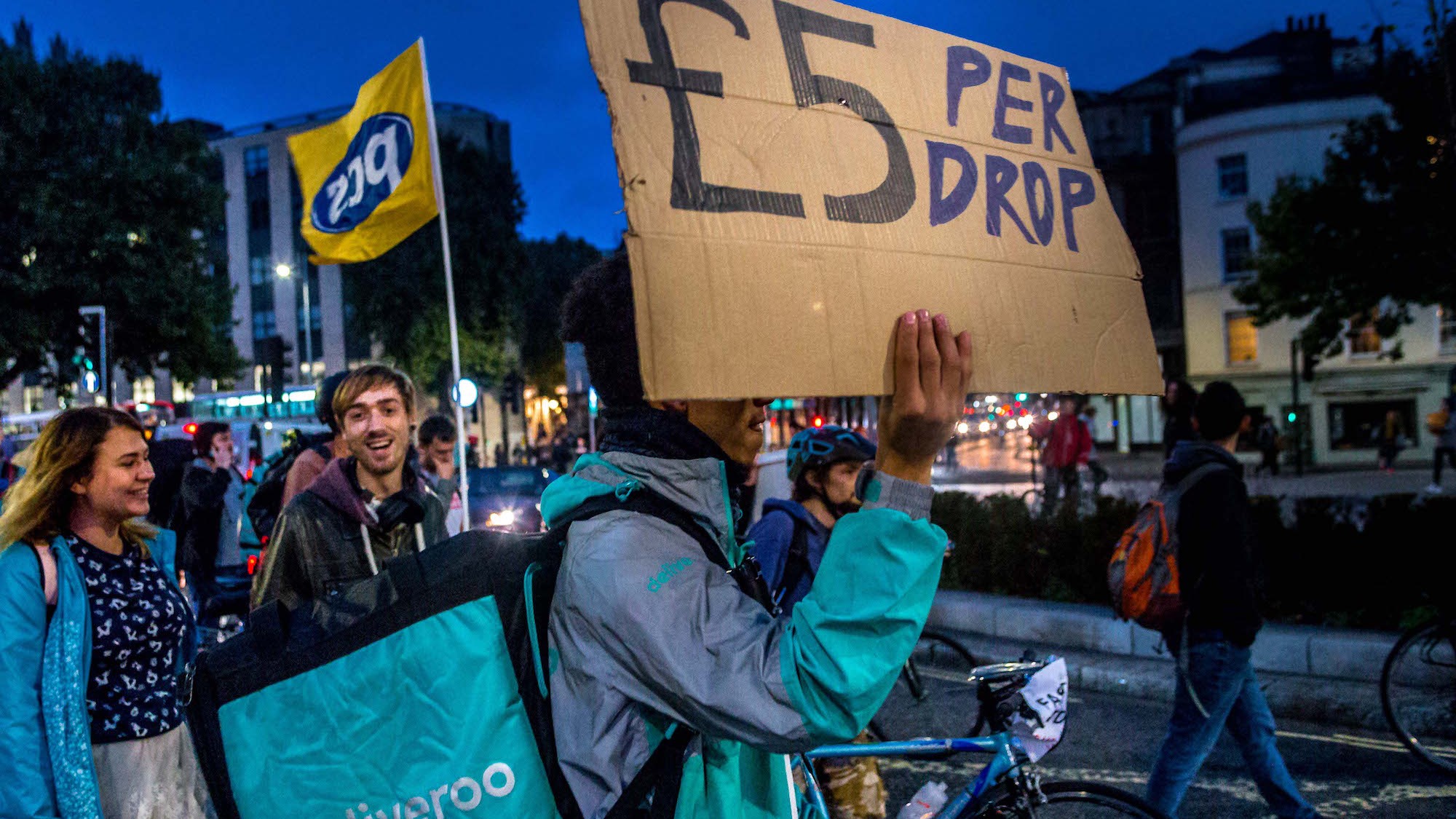Introduction by Dan McMahon to the session:
Globalised precarity & inequality – beyond the gig economy
Why precarity & inequality are the new normal
Can AI benefit the 99%?
Technology as a liberatory tool
Achieving co-ownership and control of the corporations
What to do with the financial system
In the year 1930, John Maynard Keynes predicted that, by century’s end, technology would have advanced sufficiently that countries like Great Britain or the United States would have achieved a 15-hour work week. There’s every reason to believe he was right. In technological terms, we are quite capable of this. And yet it didn’t happen. Instead, technology has been marshaled, if anything, to figure out ways to make us all work more. In order to achieve this, jobs have had to be created that are, effectively, pointless. Huge swathes of people, in Europe and North America in particular, spend their entire working lives performing tasks they secretly believe do not really need to be performed. The moral and spiritual damage that comes from this situation is profound. It is a scar across our collective soul. Yet virtually no one talks about it.
David Graeber
This extract illustrates many of the contradictions of the late capitalist landscape of work. Labour is not only increasingly isolated and alienated by the language and consciousness of ‘entreprenuerialism’, seeing ourselves and others as human capital and resources, but there is a sinking feeling that the work that we are doing might actually be pointless or socially harmful. Our energies and efforts have to be spent playing a game for which there is no fair remuneration and that we suspect there is ultimately no point to.
Many people’s experience of work is very abstracted from activity which would help them and others to live, and drudges on with little passion. To work can be a source of meaning and identity, but as neoliberal capitalism creates ever more exploitative working conditions and with a stagnation of pay, the workplace becomes a central area of conflict between bosses and those who sell their labour to live. The exploitation of capitalism runs far deeper than the extraction of surplus value from the sale of our labour. We are denied the freedom to develop our capacities or have a meaningful say in the direction of much of our lives.
Yet, even in the most meaningful and socially important forms of work, often receives little recognition or the hope of fair pay and conditions. Care workers are essential to the welfare state upon which our neoliberal economy relies to look after the elderly, those with mental illness and physical health conditions, which prevent (at least temporarily) participation in the labour market. The sector is characterised with minimum wage pay, part-time and sessional contracts and sometimes lacks payment for work-related travel. Why do we make it so hard for these workers to live?
 The Gig economy promises a culture of punk, work without a boss, choosing your own working hours, yet is still wholly contained within the corporate model, represented by Uber and Deliveroo. Courier riders can fetch your meal and deliver it across the city, yet are subject to dismissals which they can’t challenge as they aren’t seen as employees. Courier riders face massive changes in pay rates per mile and boosts, which impacts their ability to pay the rent, as well as long waits in fast food restaurants for which they are not paid.
The Gig economy promises a culture of punk, work without a boss, choosing your own working hours, yet is still wholly contained within the corporate model, represented by Uber and Deliveroo. Courier riders can fetch your meal and deliver it across the city, yet are subject to dismissals which they can’t challenge as they aren’t seen as employees. Courier riders face massive changes in pay rates per mile and boosts, which impacts their ability to pay the rent, as well as long waits in fast food restaurants for which they are not paid.
The question of how to organise the precarious workers of the 21st century, both those who regard their jobs as bullshit, as well as ‘gig economy’ and care workers in what might be seen as socially necessary and fulfilling roles in a world of worker control, is one for unions and leftists of all kinds to be asking at this explosive moment.
Critical Issues for Discussion
– How do we organise workers in this context? Is the ‘fast food shutdown’ or precarious worker demos which have taken place in the UK part of this answer? Organising around shared struggles, in inclusive identities, such as ‘worker’ or ‘precarious worker’…
– What would we want the world of work to look like in a utopian, revolutionary situation? what would we all be doing? Would we be working less?
– What is the role of technology in all of this? It has created bullshit jobs, but also may soon be bringing waves of automation to industries- even the ‘gig economy’, where UBER are experimenting with driverless cars and automated courier bots?
– How do we relate the question of work to social reproduction, and the notion of what we value? We see a lot of focus on STEM industries but care and education are rarely seen as critical industries and infrastructure- is this the legacy of sexism? How do we humanise ourselves and our society?
Resources
David Graeber, 2013- On the Phenomenon of Bullshit Jobs, A Work Rant, published in Strike! Magazine
Naomi Klein, 2017- No Is Not Enough, Defeating the New Shock Politics, allen lane: St Ives
This discussion also involved a live-video chat with Chris from the IWW Couriers Network – that discussion is not online at the moment, though a The New Syndicalist did a recent interview with Chris about this, which covers much of the same material. – https://newsyndicalist.org/2018/11/08/talking-shop-4-courier-organising-in-the-gig-economy/
